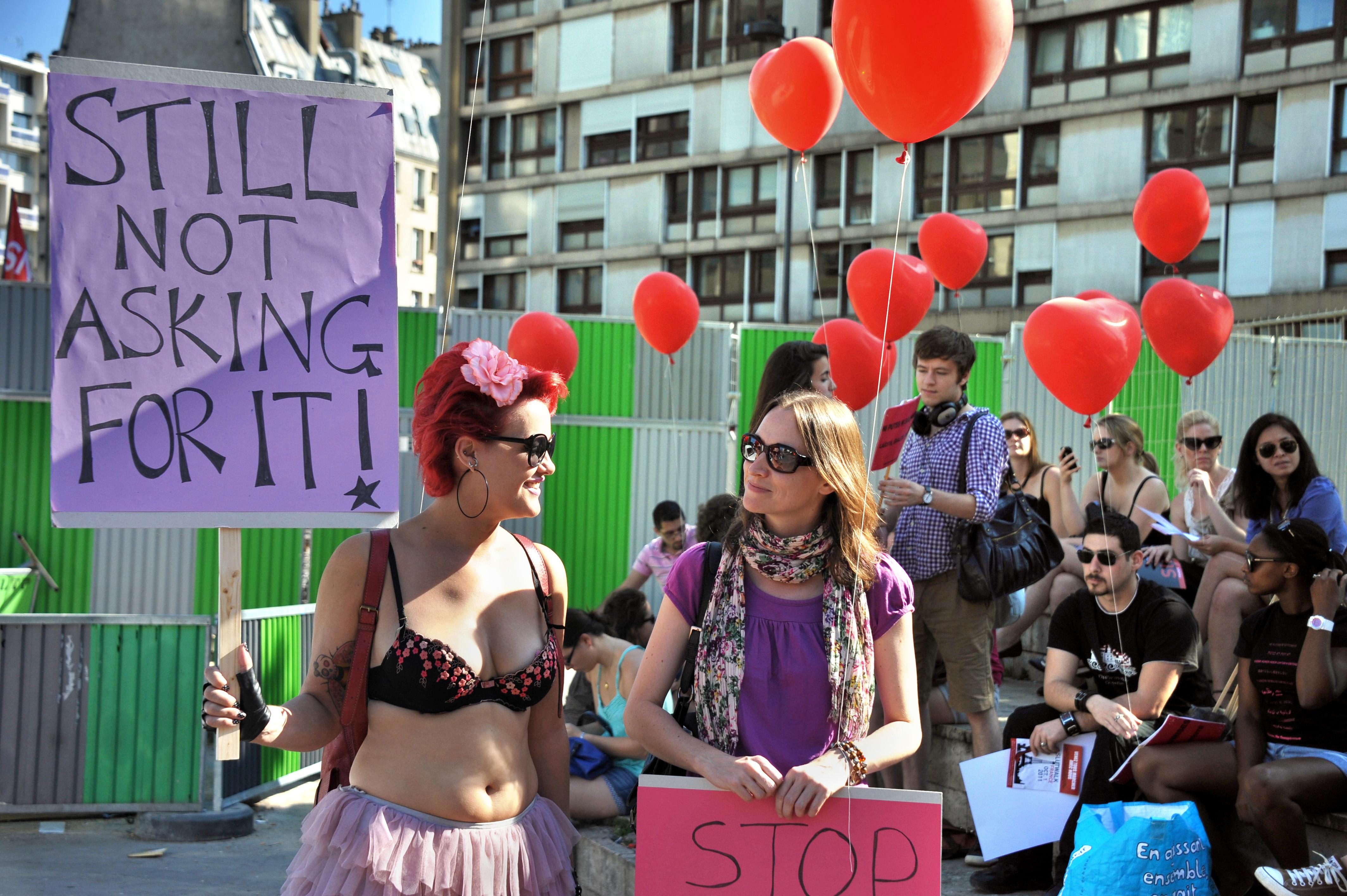If you’ve been following the movement known as SlutWalk, you know that women’s clothing and what it means to men has become a fairly prickly issue over the past few months. To recap: A group of women started the walk in Toronto in response to a police officer’s recommendation that “women should avoid dressing like sluts in order not to be victimized.” Understandably, this paternal advice upset those who held the novel view that what women choose to wear should not make them targets for rape or objectification.
While the SlutWalk argument is well-taken, social psychologists may have an explanation for why men so readily draw the connection between dress and personal culpability for sexual assault in the first place—and it’s not just sexual objectification. In a recent study published in the Journal of Personality and Social Psychology, Kurt Gray and his colleagues argue that, instead of seeing women merely as dehumanized sexual objects, men actually perceive the opposite sex as a different kind a human being altogether; or, to put it another way, as belonging to a different rubric of humanness (PDF).
Through a series of experiments in which male subjects were shown images of women in various states of dress and with different croppings (only face, more body, full body), the researchers found that an increased visibility of flesh led to a decreased perception of agency (mental ability, self-control) and a heightened tendency to view the women as “feeling” creatures, beings of low intelligence mainly defined by emotions, pleasure and pain.
Of course, the researchers are not arguing that women are, in fact, ”feeling” creatures rather than people with agency, but only that the more scantily clad ladies are, the more men focus on their corporeality—the perceived weakness of their bodies over the strength of their minds. This could well help explain the sexism experienced by SlutWalk organizers: The cops view the “sluttish” women as something akin to a puppy dog in need of protection (even from themselves), as opposed to theoretically sophisticated college students.
Clearly, this hypothesis doesn’t excuse a response that is obviously sexist—we have to overcome our mental predilections all the time—but it does complicate the idea that such reactions are only about power and sex. While SlutWalkers and others should definitely be allowed to dress however they please, this study suggests that it may be strategically useful to recognize men’s unintentional reductive tendencies when working together to combat sexual violence.
